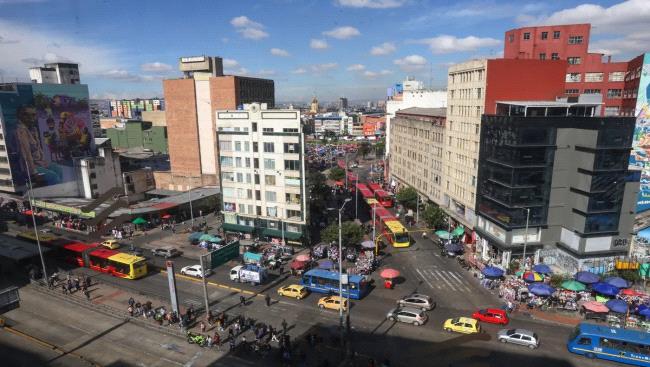

06 يونيو, 2025 06:40:06 م

Bogota, ColombiaPhotographer: Antonio Cascio/Bloomberg
By Zijia Song
Colombia’s bonds and currency sold off on Friday amid investor fears that the government may suspend the fiscal anchor that curbs its ability to run up debt.
The nation’s dollar-denominated bonds slumped as much as 1.8 cents on the dollar and the peso slipped as much as 1.2%, among the biggest falls in emerging markets, according to indicative pricing data compiled by Bloomberg.
The fall began on Thursday after local media reported that the the committee would discuss a possible suspension of the fiscal rule, or balanced-budget act.
Finance Minister German Avila is scheduled to speak at a banking conference in Cartagena on Friday afternoon. Investors will monitor his speech for possible comments about the rule, which has reassured markets and ratings agencies since the law to introduce it was passed in 2011.
Colombia’s fiscal committee, comprised of the government’s top finance officials, will announce a new budget plan next week.
The finance ministry’s press office declined to comment on Friday’s market move.
The possible suspension is adding to the market’s concern for a country already struggling with a widening budget deficit and slumping oil prices.
“It seems the Petro administration may be pulling the plug on fiscal responsibility,” said Aaron Gifford, an emerging markets sovereign analyst at T. Rowe Price in Baltimore, in a written reply to questions.
The extra yield investors demand to hold Colombia’s sovereign debt over US Treasuries jumped 10 basis points Friday to 3.53 percentage points, according to JPMorgan Chase & Co. data.
A suspension of the fiscal rule will likely result in credit downgrade for the country by Moody’s Ratings, said Ricardo Penfold, managing director at Seaport Global. It could also turn the country’s central bank more cautious on its monetary easing cycle, he added.
Lagging Revenues
Analysts surveyed by Bloomberg have steadily lifted their 2025 deficit forecasts in recent weeks as tax revenues lagged expectations. At the same time, the government of President Gustavo Petro has declined to rein in spending on the scale needed, leading a finance minister to quit in March.
The government said in February that it aims at a budget deficit of 5.1% of gross domestic product in 2025. However, many economists now expect a fiscal gap equivalent to more than 7% of GDP, the widest since the pandemic.
Central bank co-director Mauricio Villamizar warned on Thursday the action would rid the country of a credible fiscal anchor and that it doesn’t appear to be a “justified need.”
Bloomberg